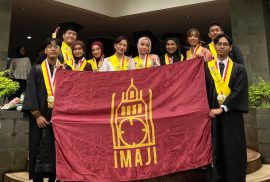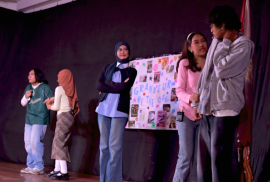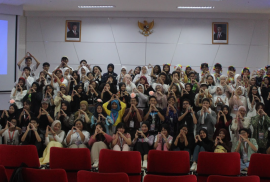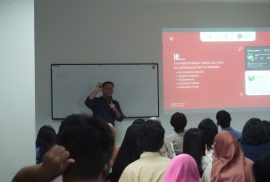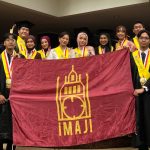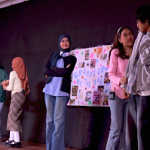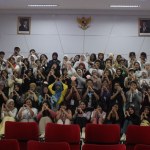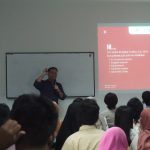The past four months might have been the best four months of my life. Indonesia International Student Mobility Awards has given me a chance to study at one of the most prestigious universities in the world, Nanyang Technological University, in Singapore. I made some good friends, learned new lessons in both classes and in life, and created beautiful memories that are worth cherishing in the Lion City. Here are some stories of my life in Singapore!
Adapting to Life in Singapore

Is it hard to adapt to life in Singapore?
Very hard lah. At first. But overall? No, not really.
What made it hard, then? For me, it’s because I come from a small city in Indonesia: Yogyakarta. I’m used to living in a small village with its quiet and laid back lifestyle, far from the hustle-bustle of a city. Despite my love for traveling, I usually only travel to quiet mountainous areas, and do not venture to metropolitans like Jakarta or Surabaya. So, I was overwhelmed when I set foot in Singapore for the first time. How could I not? Tall buildings surrounded us everywhere! And everything looked so modern and lavish, which encapsulated the essence of “city life” so accurately. I wondered if I could survive living here, with strangers as my companions, and in an entirely different country.
I was also concerned with the living arrangements when we would arrive in NTU. First of all, I am a shy person who takes a long time to open up to new people. Secondly, I didn’t really like the idea of living with a roommate. And I had to deal with this in the span of 4.5 months? Was that enough time for us to bond? At the end of the day, only time would tell.
Academic Life at NTU
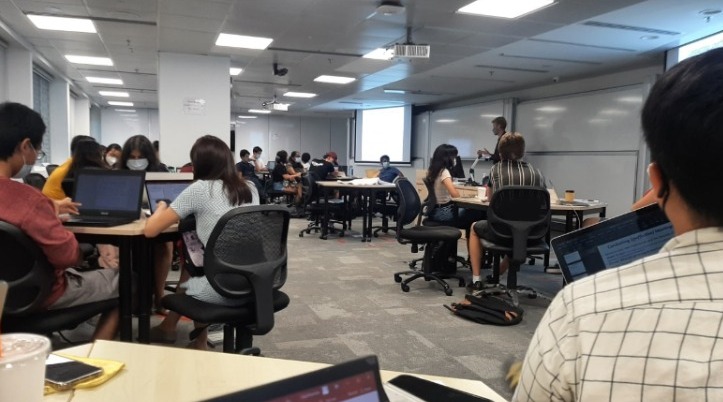
At NTU, there are three kinds of lecture styles: 1) seminars; 2) lectures; 3) tutorials. In the English Department, we usually have lectures: the professors/lecturers explain concepts and information to us while we take notes. This is also what we do in lecture class at NTU. For seminar classes, it’s usually applied for smaller classes consisting of 20-30 students. The students will then be divided into smaller groups, around 4 to 5 students per group. In this class, we’re expected to read the materials ahead of time and discuss them with our teammates and the professors. Overall, the seminar class is way more interactive than lectures and, in my opinion, it’s also the most fun style! For tutorial classes, it should be similar to what we have in our department.
On top of that, we also have to study the necessary materials before coming to class. Thankfully, NTU’s syllabus and system are very detailed and comprehensive, so we had no difficulty accessing the materials. Aside from presentation slides, we also had to watch lecture videos and read several articles before the lecture or seminar began.
The classes I attended were all exciting and full of new knowledge to learn. Furthermore, all of the staff, from the professors themselves to the tutors, are very approachable and easy to contact. They are also very attentive to their students and make sure that we are all doing well in their classes. In seminar-based classes, the professors even send an email to the students when they don’t attend the class without informing them.
I registered for four courses this semester: Introduction to Computational Thinking and Programming, Cultural Intelligence, Leadership in the 21st Century, and Climate and Climate Change. Both Computational Thinking and Climate Change are lecture-based classes, while Cultural Intelligence and Leadership are seminar-based classes. Computational Thinking also has tutorial and lab sessions on top of lectures from the professors. Each of these courses has three Academic Units (credits), which translates into three-hour sessions.
I struggled the most with Computational Thinking since I study in the English Department at my home university, thus I didn’t dabble in mathematics and logic. In contrast, I enjoyed Cultural Intelligence and Leadership a lot as they examine human communication skills and values that can be applied in real life. In addition, we were divided into teams in those two classes, which gave us a chance to experience working together with people from various backgrounds. Climate Change was very technical, yet it was also fun to learn the details of the Earth’s climates and how it has changed over time (although learning several physics equations was not as fun).
Social Life
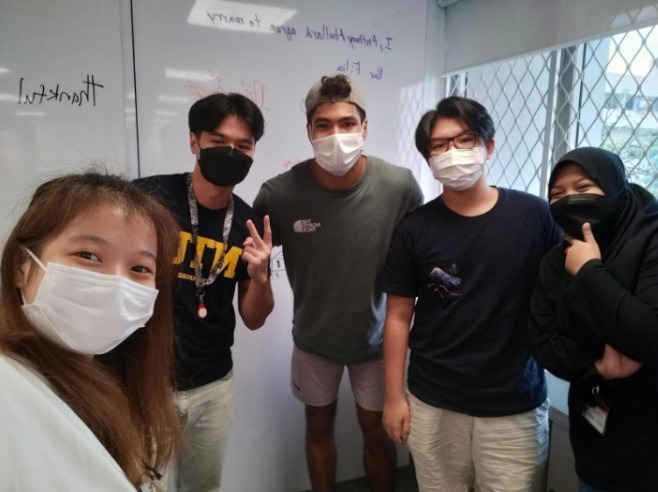
During my stay in NTU (and by extension Singapore), I made a lot of new friends. Initially, NTU staff hosted a brief orientation program for us IISMA awardees and assigned us into groups and assigned us a buddy, who acted as our host for the rest of the semester. There were also other orientations and networking events for international students to help us integrate into the life in NTU and Singapore.
Besides that, I also made friends from my classes and communities that I joined there. Unfortunately, NTU clubs are not open for exchange students, so we couldn’t join any there. Therefore, most of us looked for friends elsewhere. Some international students partook in parties and clubbing, while my fellow awardees sometimes joined in casual activities like visiting a museum or having lunch together.
For me personally, my social life mostly revolved around going out with some close friends, both from IISMA and other NTU students, and my activities in two gamelan communities. I visited museums, strolled around the quiet Peranakan establishment, cycled along the East Coast, attended rehearsals for both Javanese and Sundanese gamelan, and watched a gamelan performance with my friends.
Singa Nglaras
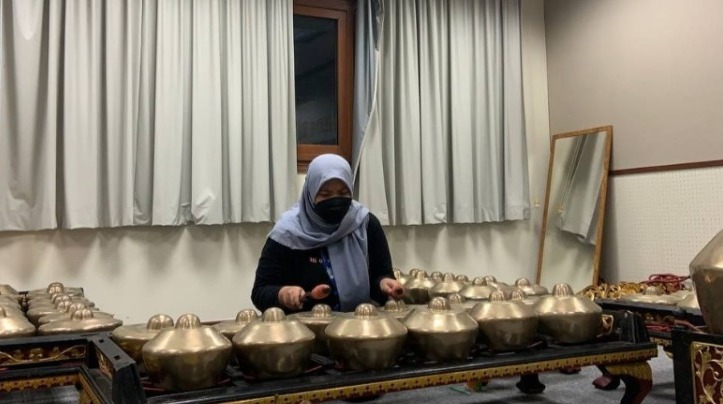
I’d like to give an honorable mention to Singa Nglaras because they were a significant part of my IISMA experience.
I searched for “gamelan community in Singapore” to find out which one is still active (because gamelan communities’ social media accounts don’t get updated often). It is called Singa Nglaras—meaning “relaxing lion”—and it seems trustworthy, for lack of a better word, as it’s officially under the Department of Southeast Asian Studies at the National University of Singapore (NUS). I was hesitant to contact them until I read that they welcome everyone who wants to join, musical experience or not. Thus, I finally contacted them.
I was fairly nervous at first because I found out that there were no Indonesians nor students in sight during the first rehearsal I attended. It was my fault though; I thought Singa Nglaras members comprise NUS students and/or some Indonesians, given that it is under NUS and a gamelan group. Another culture shock that I faced is that they read the song’s notes in English, whereas I’m used to reading them in Javanese.
I hadn’t come for rehearsals for two years, so my skills in nabuh were rusty. The leader, Mas Xinwei, said that they are all still learning, so I should take it easy and learn alongside them. (Being a naive trusting person that I was, of course I believed him). I was shocked when they played like professionals during the rehearsal. I was very impressed with them, though. They were like a well-oiled machine that worked in synergy and helped each other whenever they needed it.
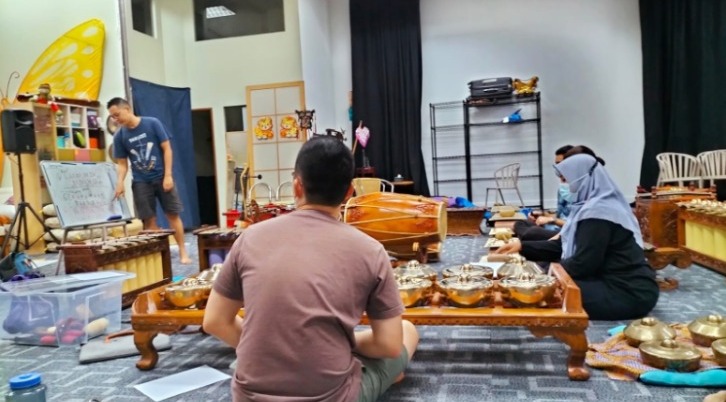
I never thought that they could be that nice. All of them are good people; they were patiently teaching me how to play certain instruments, encouraging me to hang out with them and share my life in Java, playfully forcing me to take away the food they bring to rehearsals because I was a student living in a dorm, and sometimes invited me to ride a cab with them to the nearest MRT station. The kindest thing they did to date is holding a farewell party for us IISMA-NTU students when we were about to go home to Indonesia.
Lessons I Learned in IISMA
I’ve learned a lot in the span of four months of the program. One of my goals was to improve my capability for intercultural communications. The lessons I gained from classes, combined with the small yet diverse cultural backgrounds of Singapore contribute a lot to achieving this goal. The most useful lesson I learned from class, especially Cultural Intelligence one, is how to manage and resolve conflicts effectively.
I also said I’d like to make friends with those who love cultural customs and traditions. And I found plenty of them! I met someone from China who eagerly explained her culture to me. Another friend I met is a Singaporean with a Peranakan background whose work in contemporary dance is inspired by his background. Another friend I have loved Javanese traditions and philosophies, which resulted in lengthy discussions about them. I also have plenty of friends who taught me about Singapore and what it has to offer.

